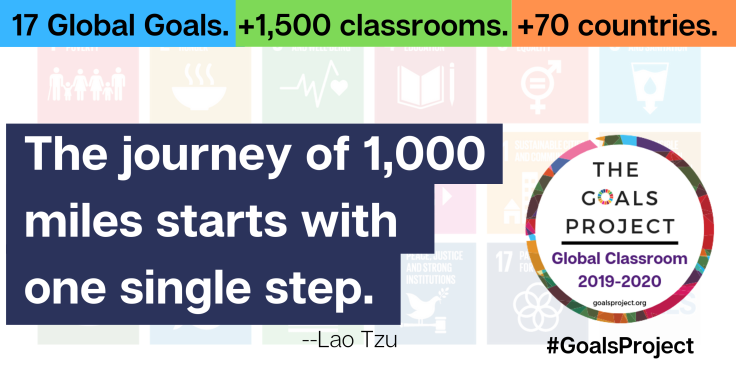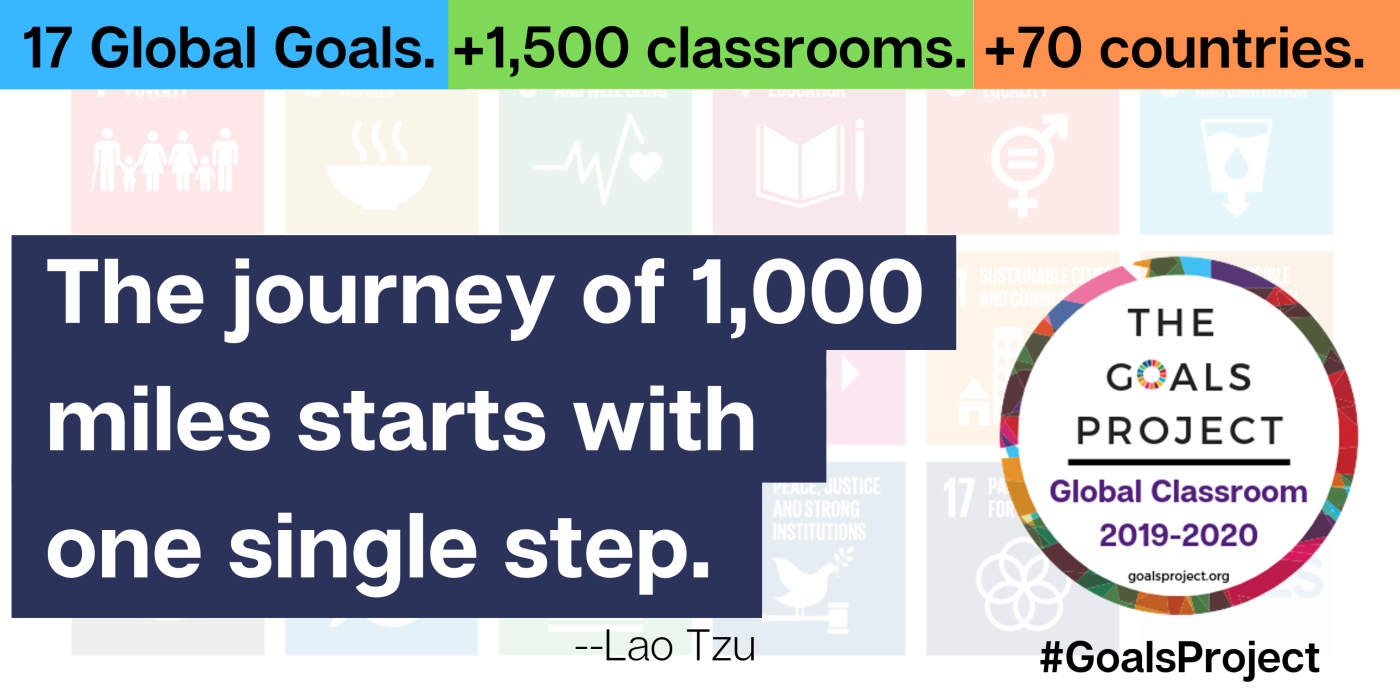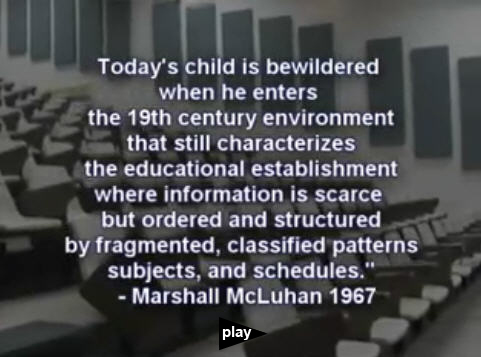Towards the end of the summer vacation, as I was rounding up my plans for my teachings in the coming school year I have decided to dedicate the first month of the year with both my gifted classes to participating in a global project: The Global Goals project.
The month of September is always hectic. The kids are back from vacation with unexpected energy. There are multiple holidays that won’t really let you gather your students to learning, as every day you think about the next vacation. So rather than starting a serious literary unit, I thought that an active project, which requires active research and creative doing, is the best way to start. Now, as we finished this project, I am afraid I won’t live up to expectations for the rest of the year.

A quick background. I teach English as a foreign language to these 2 classes of gifted students. They are in 8th grade, on average 13-14 years old. We live in Tel-Aviv. The Goals Project is an international project aiming to increase awareness of the UN Sustainable Development Goals: “17 Classrooms working on 17 Goals. Together.” They from groups of 17 classes, sorted into age groups. Within each group, each class gets a goal to research and do a project on. The project starts with introductions by the participating classes and ends with sharing the projects prepared by each class.
At first, when I explained the project to the classes they seemed unsure. But then, we went on Flipboard and browsed together through introductions of classes of all ages, from all over the world. At this point – they got hooked. Their enthusiasm rose as they started to plan and prepare their own video introductions. You can watch them on Flipgrid here and here. This was our Week#1 assignment.
In the second week, the students accepted their goal and started to get to know it. I can’t say there was any English teaching going on. But, oh, so much English learning. The self-driven character of the project was a fantastic hook. They delved into the net to read about it and further their research. They learned many new words, they were exposed to a variety of international topics and found out how these goals are relevant to their lives. They became passionate about this.
The last 2 weeks of the project were dedicated to each class planning and creating their own project, to demonstrate what they learned and share their knowledge, help spread the word and increase awareness. These were the most creative and enthusiastic students you can imagine. I was impressed by how seriously they grasped their assumed responsibility for raising awareness. This did not stop at making a nice project. It had to be perfect. They rechecked their English writing and double-checked each other even before submitting for my inspection. It is international and so has to be respectable.
Each class worked on its own goal, but both classes considered two similar options of a website and a game. In the end I encouraged them to do both, so half the class developed a game, a serious game, and half of the class developed the website.
It was exhilarating for me to see how engaged they were in the work. They skipped recess to continue working and meet the deadlines. They shared their work with me through the holidays just to make sure it is done correctly and in time. And oh! What project! What a learning experience!
I am so proud to present both projects here.
The #SDG17 project is a website and a card game. The card game is based on Quartets. Since the goal is titled “partnerships for the goals” the students designed a quartet game in which you can only win if all goals-sets are achieved, and you can only get there by sharing resource cards. Here is the link to the website. A link to the game is in the website (for download and printing).
The #SDG3 project is a website and a digital game. The website includes an “ideas” section aimed at developing a conversation about the goal and how to help promote it. As they discussed the goal, “Health and well being”, they claimed it sounded utopic and unrealistic. But through research, they discovered so many ways each person can contribute to it and they became encouraged and curious about more ideas. Their serious game concentrated on the issue of vaccines. It takes a humoristic view on the topic but works well in sending a message about the topic. The students created all game elements and graphics on their own and one of the students assumed responsibility on the programming in Construct2.






























Recent Comments